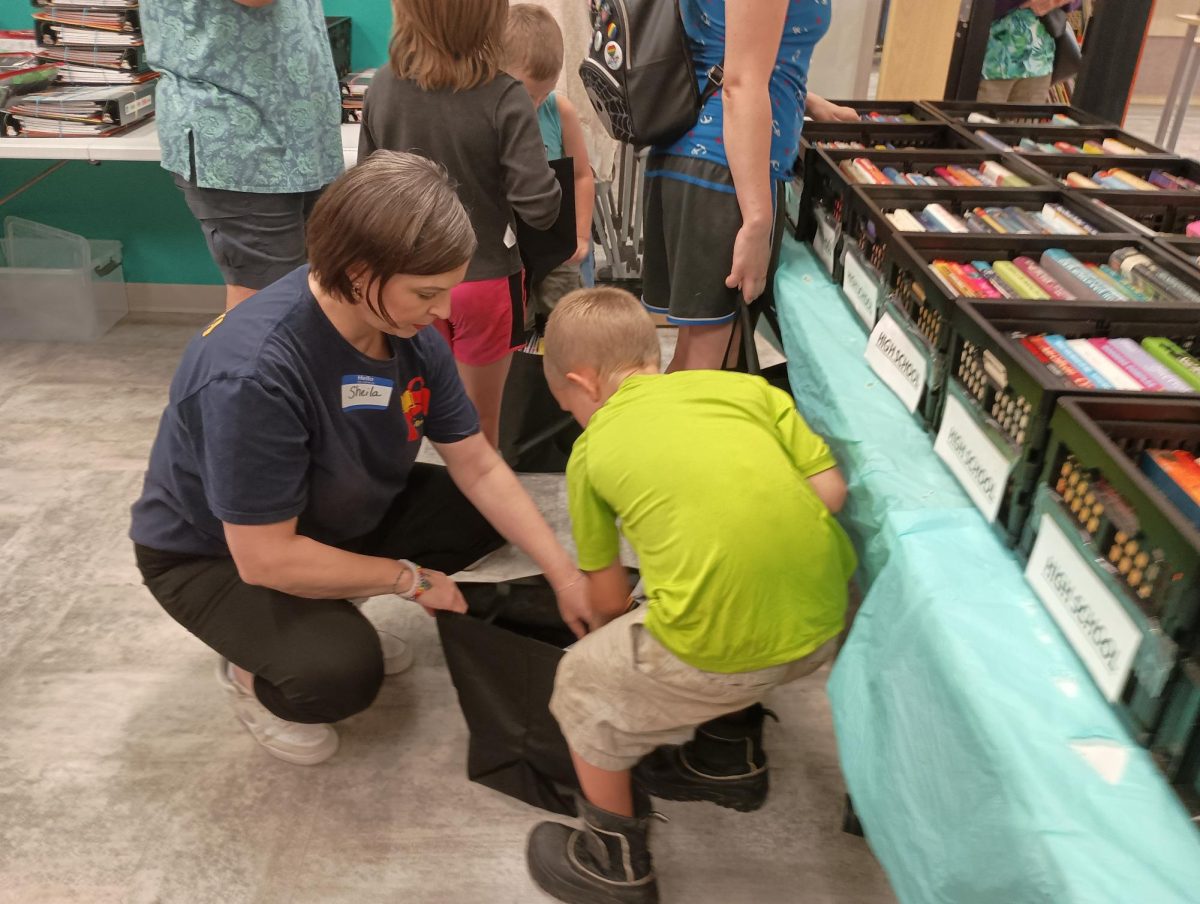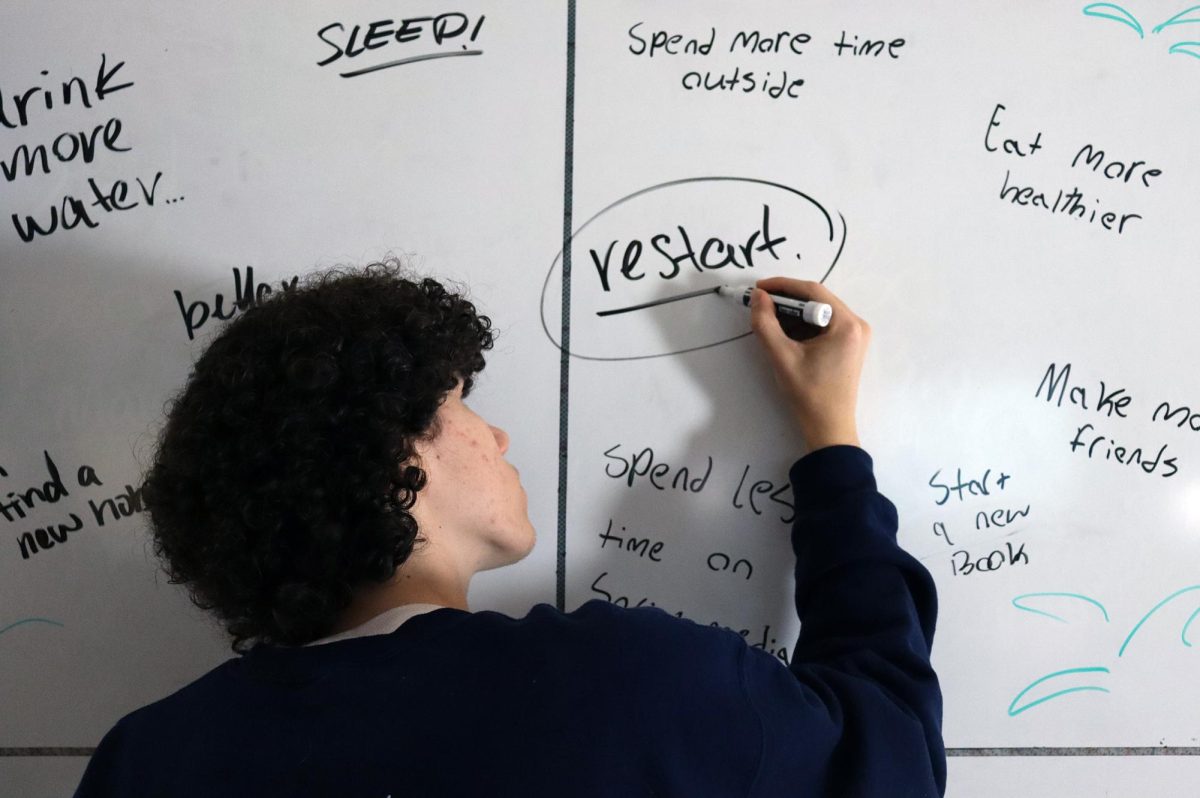Summer, which can be seen as freedom or a break from school for students, can also be a time to bed rot and avoid daily tasks. Bed rot, a term that describes the act of staying inactive and secluded in one’s bed for extended periods of time, has become more prevalent in younger generations and can negatively affect students during the summer.
“[Bed rotting is] … being depressed and not wanting to take care of yourself, staying in your room all day, being on your phone or just sleeping,” Missouri State University sophomore Marielle Chu said.
What might begin as extra time to rest can slowly shift into avoidance. One might bed rot during the summer to distract oneself from one’s workload. Chu said bed rotting was usual for her in 2020, when the COVID pandemic caused a global quarantine.
“[I would try] to avoid my responsibilities as an adult,” Chu said. “So I’d bed rot just to kill time or because I didn’t want to start something that I should’ve started like a week ago. I’d just bed rot to distract myself from the reality of my issues.”
With the popularization of relatable content on social media, one could find videos of people bed rotting.
“I think they’re trying to dilute the meaning of bed rotting and normalize it as something that everybody does,” Chu said. “But realistically, it’s not normal to bed rot. It’s actually a sign of depression … it just kind of makes it seem like this is a normal-person activity that everybody does.”
Though some believe bed rotting is a rather harmless activity, it can negatively impact one’s physical health.
“If you’re not moving, if you’re not getting out of bed, to get a glass of water or to eat, if you’re avoiding exercise in the long run, that’s bad for your heart and for your muscles,” Chu said.
Physical health isn’t the only thing that can be affected. One’s mental health can also deteriorate from long periods of seclusion, while enhancing the itch to confine oneself more.
“If you’re just shutting yourself out from everybody, it’s just going to worsen any pre-existing feelings of isolation or sadness,” Chu said.
Prolonged solitude from bed rotting can harm one’s occupation and education.
“You’re doing nothing but staying in your room,” Chu said. “As a consequence, if you don’t go to work, you know you’ll get in trouble with your job … When it comes to your education, if you’re not showing up to class or doing your work because you are bed rotting, you know that is going to affect your academic life.”
Another consequence of bed rotting during the summer is that it can damage social relations.
“If you don’t hang out with your friends, they’re going to be confused as to why you don’t want to hang out with them,” Chu said. “You’re probably going to hurt your relationship with those people.”
The negative impacts can be reversed. Wanting to make memories over the summer may be helpful when attempting to limit bed rotting. Nixa High School Advanced Placement Psychology teacher, Josh Posegate, said staying active can be beneficial to one’s summer.
“I don’t think anybody’s ever going to remember an eight-hour day of experience of looking on their TikTok versus an eight-hour experience of being with somebody else, doing something fun and having an actual real-world experience that sticks [with] them,” Posegate said.
One can also look forward to spending time with loved ones when finding motivation to get out of bed.
“When you have people that want your company and your presence, I think that encourages [you],” Chu said. “Me personally, that encouraged me to come out and be social because there were people that loved me that wanted to see me, so I felt like I needed to show up for them. Internally, it made me feel better about myself because it chased away those lonely feelings.”
Time management may also help one reduce summer bed rotting.
“[Try] to moderate your amount of time [and] try to come up with strategies to do other things throughout the day,” Posegate said.
When one feels under pressure or overwhelmed by the number of goals one has, setting attainable and small steps can benefit one’s progress.
“[Setting] goals can also make you feel accomplished,” Posegate said. “Having that meaning and purpose helps out in general, in life, not just with [summer] bed rotting.”




![“You have to recognize that you have a problem and it's affecting your life in a seriously harmful way, but you also have to take the steps to avoid [bed rotting] and also to put yourself out there,” Missouri State University sophomore Marielle Chu said.](https://nixajournalism.net/wp-content/uploads/2025/05/bedrotting-1140x1200.jpg)











